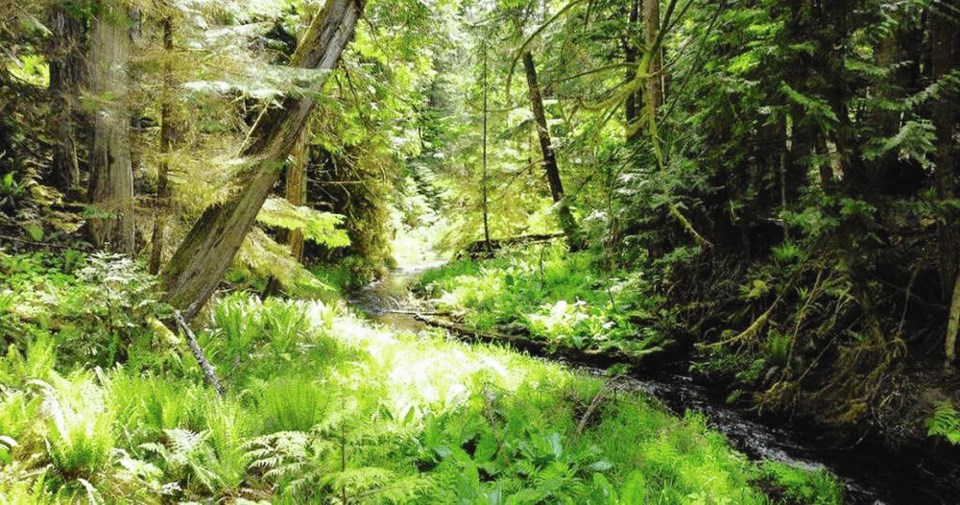The Nature Trust of B.C. is aiming to raise $1 million by the end of the year to purchase 38.7 hectares of mature Douglas fir forest on Denman Island.
The goal is to conserve rare coastal rainforest and at-risk species, including the endangered Taylor’s checkerspot butterfly.
The trust announced this week that it has been given an opportunity to buy the land, but needs the funds by the end of the year.
The land is located adjacent to a Denman Conservancy Association conservation area called Central Park, and the Denman Island Provincial Park and Protected Area. Acquiring the 38.7 hectare property would increase the conserved area to 187 hectares that will never be sold or developed, the Nature Trust said.
The trust said the property has timber value “and its purchase will ensure that its sensitive, rare, mature forests and wetlands are protected in perpetuity.”
It said the coastal rainforest on Denman Island includes wetlands and open areas, along with a riparian corridor along Beadnell Creek, which is a salmon-spawning stream that also supports cutthroat trout.
Coastal rainforests are some of the wettest non-tropical ecosystems on Earth, said Nature Trust of B.C. chief executive Jasper Lament, who called the Denman Island coastal rainforest an “ecological powerhouse” that provides tremendous benefits to wildlife, people and the planet. “It is so important that we join together to protect these vital ecosystems and combat climate change and biodiversity loss.”
Denman’s coastal rainforest is considered a regionally significant wetland within the Pacific Birds Habitat Joint Venture program area, said the trust, adding 10 bird species listed under the federal Species at Risk Act have been seen on or near the property it’s attempting to purchase.
Those birds include the band-tailed pigeon, evening grosbeak, peregrine falcon, marbled murrelet, barn swallow, western screech owl, ancient murrelet, great blue heron, olive-sided flycatcher, and common nighthawk.
“Not only do mature forests provide clean air and cooler temperatures, they provide breeding and foraging habitat for mammals, birds, and invertebrates,” Lament said. “It is our responsibility to ensure that these majestic forests can continue to grow and thrive for the benefit of the planet and people.”
>>> To comment on this article, write a letter to the editor: [email protected]



